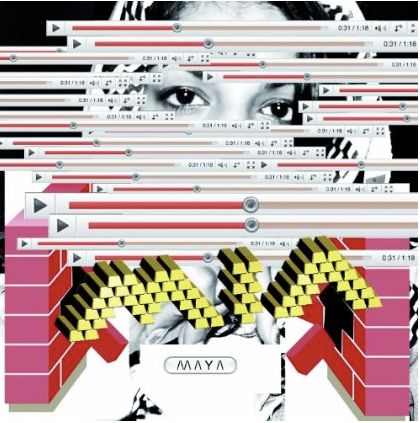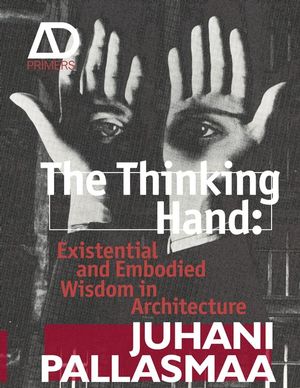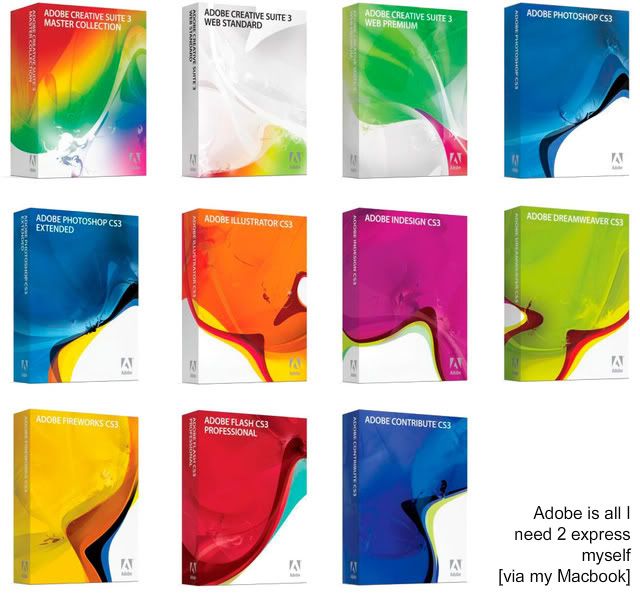Tuesday, June 29, 2010
Friday Movie
So, last Friday we watched The Fountainhead. An adaptation of the Ayn Rand book to film, it depicts the story of the strongly individualist Howard Roark, an architect unwilling to compromise, shunning the wants of the collective for the will of the individual. Bursting with contempt for 'the masses', raging with melodrama, and peppered with some bizarre and thinly-veiled sexual metaphors, this movie swung between quizzical and hilarious.
How it relates to architecture? Well, Roark was an architect who made FLW-esque buildings which were only accepted in all their greatness by a select enlightened few. His modern skyscrapers were defaced with classical columns and porticos by the mediocre popular architects and designers, who all fell under the sway of a prominent architectural critic working for a wealthy but tasteless newspaper tycoon. The movie addressed what one day each of us will have to face: being the intelligent, visionary individual fighting against the uneducated sheep-like collective. Kidding.
What are your opinions of the book/movie?
COMING ATTRACTIONS!
This Friday, we'll be screening French film Mon Oncle.
It's a comedy, about the super-modern 1950's when everything is automated and chrome plated. We'll be exploring themes of industrialised modernisation and consumerism, in French. Should be a laugh, everyone is most welcome to attend.
What: Mon Oncle
When: Friday 2nd July, 3pm.
Where: LT1 - (to be confirmed)
Followed by a beer or two after to aid in discussions.
We'll also be showing another movie the following Friday, 9th July.
Sunday, June 27, 2010
Online Gallery
Now collecting images for an online gallery of student work.
Send in a few photos of your most successful models, scans of drawings or pages from your sketchbook. Also your final presentations as long as they're not in a weird super-wide format. First year stuff is good too.
Initially I'm going to chuck them onto a flickr account to get the images all hosted online, then hopefully at some stage an html whiz can figure out how we can integrate the gallery into the blog.
Steps to follow:
1) Choose images
2) Resize them to a width of 1500 pixels at the biggest please. For final presentations a max of 2000 pixels wide.
To do this in photoshop, click Image > Image Size > type '1500' into the box where it says width (and make sure 'pixels' are selected rather than 'percent', and that the ratio is locked) > OK, save etc..
3) Send them to archcritters@gmail.com with a brief caption per image.
4) Tell everyone else to do the same.
Looking forward to seeing your work!
Build a bridge...
and get over it.
Seeing as trusses didn't feature in the structures exam, here's an awesome semi-addictive bridge building game to put your knowledge to the test. It's also quite amusing to watch the little men fall to their doom if the bridge fails.
 Cargo Bridge Cargo BridgeBuild a bridge to help your workers transport the cargo. . |
| Play more games on Miniclip-Games.net |
Cheers to Luke Melhop for finding this!
Thursday, June 24, 2010
Third years have feelings too.
A warm welcome to our older siblings the third years. And congratulations for being halfway through.
Extending an invitation to you to rant like crazy, and also hopefully get your lecturers on board as we have done (thanks m-d).
To begin : how was your first semester of 2010?
Thursday, June 17, 2010
Informal Crit
Hey everyone,
I reckon the second year design team worked their ass off, and for no recognition. So how about an informal crit? I say we hijack those hd tv's and do our own crit, or perhaps as BCosby suggested maybe we start a web page where we present all our work as a gallery. Anyone interested in organizing some form of presentation? I feel like our work at least stands up to third year, if not better.
I reckon the second year design team worked their ass off, and for no recognition. So how about an informal crit? I say we hijack those hd tv's and do our own crit, or perhaps as BCosby suggested maybe we start a web page where we present all our work as a gallery. Anyone interested in organizing some form of presentation? I feel like our work at least stands up to third year, if not better.
Monday, June 14, 2010
Trimester 1 2010 - The Verdict
Ok critters,
Trimester one is drawing to a close, and although we've already done those course evaluation forms I question how much weight those little circles hold. More often than not, the sight of a survey is often enough to reduce you to just ticking the middle box without even reading the question.
So, here we have a perfect forum for expressing our opinion on the education we are receiving. Post comments beneath this message about what you believe worked or didn't with any parts of our first trimester of second year. Let's be constructive, however rants are permitted. Post anonymously if you wish.
Just mull over it until our last test then let's hear it.
Trimester one is drawing to a close, and although we've already done those course evaluation forms I question how much weight those little circles hold. More often than not, the sight of a survey is often enough to reduce you to just ticking the middle box without even reading the question.
So, here we have a perfect forum for expressing our opinion on the education we are receiving. Post comments beneath this message about what you believe worked or didn't with any parts of our first trimester of second year. Let's be constructive, however rants are permitted. Post anonymously if you wish.
Just mull over it until our last test then let's hear it.
culture as an artificial construct

This time, while browsing for music, I came across a 'best of' list preceded by an insightful introduction which resonated with the 'history as an artificial construct ' thing we were exploring through our class blogs. The passage explains that music, as a cultural artifact, gets subjected to the same canon-making, narrative and aesthetic shaping that architecture does. Music, however, is much more readily produced and thus more time-sensitive.
"More than anything, decade lists affirm not necessarily the "best" albums, but which albums define that publication's cultural and aesthetic values at that moment. Sure, an album or two might slip through the cracks by publishing early, but the collective values implied by this ritual remain more or less intact."
"But taste is an ever-shifting, vibrant son of a bitch, isn't it? If we had compiled a list of this scope just three years ago, the result would reflect a very different set of tastes and values. Indeed, this list is just one momentary glimpse of TMT, one way to leave our mark, one way to essentially project our aesthetic and cultural biases into the future. Shit, maybe posterity has more to do with this than we think."
This isn't exactly a huge revelation to anyone I know but I just thought it was interesting to see an affirmation of what we've learnt in another artistic realm, plus really well expressed.
link to full page and best of list here:
Saturday, June 12, 2010
Ow My Brain
At the Daily Dish there has been an on going debate called Is Google Making Us Stupid. They recently posted a link to an article from Science Blogs entitled Tradeoffs which argues that navigating the city is far more dangerous for the brain then navigating the internet.
I particularly like the example of the city park as a way to alleviate the issue. It seems to offer new evidence for the importance of green space within a city.
I particularly like the example of the city park as a way to alleviate the issue. It seems to offer new evidence for the importance of green space within a city.
relevant and hilarious?
yes to both.
read an articulate dissertation on the benefits of Adobe software and its effect on design and art here:
Friday, June 11, 2010
Photoshop saved my ass
I have to say it is amazing piece of software and allows us to communicate things we would otherwise find impossible. For example this is a transformation of my latest work.


The difference between I guess this and a photograph is it is very easy to see that it is a presentation image and not a photograph.
I love photography an for me its the surprise of film which excites me. This is what makes a photo a photo.
When I take digital photos and on the camera i can change the saturation and contrast of the image, is this still photography? Well yes I say because we have the ability to do this in the traditional sense when developing a film.
Now at what point does a photo become an image?
As soon as it changes the physical line work of the photo?
Does it matter or is it a bit like trying to hide the structure of a building?
Will there be a revolution against the manipulation of images, "We want an honest image". Will super models have no touch up work?
A lot of questions
........ I guess I stand on the line not knowing which way to jump.
PUSH ME



The difference between I guess this and a photograph is it is very easy to see that it is a presentation image and not a photograph.
I love photography an for me its the surprise of film which excites me. This is what makes a photo a photo.
When I take digital photos and on the camera i can change the saturation and contrast of the image, is this still photography? Well yes I say because we have the ability to do this in the traditional sense when developing a film.
Now at what point does a photo become an image?
As soon as it changes the physical line work of the photo?
Does it matter or is it a bit like trying to hide the structure of a building?
Will there be a revolution against the manipulation of images, "We want an honest image". Will super models have no touch up work?
A lot of questions
........ I guess I stand on the line not knowing which way to jump.
PUSH ME

Tuesday, June 8, 2010
For the kids...
the alt-types, and the hipsters.
A discussion on 'album art' and 'tactile art' and 'photoshop doodling'.
A laugh but semi-relevant to the previous post.

Monday, June 7, 2010
the Digital Bauhaus meets the Eyes of the Skin.

While perusing other local blogs, namely Re:Speak, I came upon a post by Byron about Architecture NZ. It mentioned an essay within it written by Ross T. Smith called 'Warm Fuzzies' (architecture nz, No2, 2010. p26-28). This essay is about Juhani Pallasmaa's writings, many of us introduced to him in first year by Shenuka with the book 'The Eyes of the Skin.'
The essay looks into Pallasmaa's most recent writings and offers us a critique of architectural education similar to that of the Bauhaus. Ross T. Smith speaks of reintegrating the hand and the mind into architectural design processes, "maintaining the physical, sensual, and material qualities in architectural education through practices such as hand drawing and model making, and preserving connections to the traditions of craft, whilst preserving the indeterminate and dynamic practice of art and the ourpourings of the imagination."
The idea of being taught craft skills I think is an interesting one, and kind of appealing in our current age of non-teaching education, where we're expected to perform without being taught the relevant skills, produce models without any direction in craft, and know without being told. Our education currently comprises of wading through suggested reading lists and the hopefully relevant tangents which branch off.
I am trying to imagine a more craft-based education. For starters, we would need a better tutor : student ratio. We would need people with specialised skills in craft. What would we make? Scale model after scale model? Or details at 1:1? Entire buildings?
There seems to be some pretty cool stuff going on at schools elsewhere in the globe, most recently a project called "Five Fellows Full Scale" where a cheap, dilapidated house has been taken and rehabilitated, but simultaneously used as a testing ground for their design ideas.
Perhaps something like this could be a start. Geoff Thomas got to burn a house down for his PhD, surely we can do something a little more worthwhile than that?
p.s. link to my original 'digital bauhaus' blog here
Friday, June 4, 2010
Future History
 Jody Beck's lecture on future landscape design painted a picture of how society and civic life might formally operate when we start the downhill ride from peak oil. He painted several futures, some utopian, some feudal-esque, some relying on a new form of energy altogether.
Jody Beck's lecture on future landscape design painted a picture of how society and civic life might formally operate when we start the downhill ride from peak oil. He painted several futures, some utopian, some feudal-esque, some relying on a new form of energy altogether.His models focused largely on two important issues - food production and transport. His solutions tended to be small-scale, community based alternatives which would rely on a high degree of trust or a new form of currency.
From his lecture, I understood that his belief was that once oil had run out and our reliance on energy becomes decentralised, so too will our formal social structure. This would equate in more self reliance, and a direct connection between everyone's life and food production. The scenario is basically a scale shift from what we have now, with more emphasis on social responsibility and direct involvement.
How this relates to landscape design is based on the centralisation of productive gardens into our urban landscape. Schemes proposed by his students at Lincoln overtook car-dominated spaces such as wide roads and carparks and turned them into community orchards and bike-repair collectives. Which is nice. But, Beck admitted that the role of the designer is not to get up and say, "we need to do this now," but rather to wait with the solutions if and when society comes and asks for them.
Admittedly, this sounds more rational that Corb's interventionist schemes which disregard the true needs and wants of the people, but how are people going to agree to a beneficial scheme without fully understanding the situation?
Beck looked at some historic models such as the Garden City and FLW's Broadacre City, and medieval society structure. I don't think that these will end up informing how we go about managing future issues, because they failed for some reason or other in the past. We can't just impose a one-size-fits-all social structure.
Right now, I just can't see us gearing down our energy consumption and giving up individual freedoms in favour of weeding the bean patch. Right now I have faith in solar power, bikes, efficient public transport systems and am hoping the Americans manage to pull off a fusion reactor which is actually cost and energy efficient (better on their soil than ours).
Urban design is complex, and no single person has the answer. I think it relies on the involvement of all, education, and some wise wise people. The future is an unknown, here's hoping we make some good decisions.
welcome
fellow critters,
As a continuation of our history assignment we're going to select some of the top blogs to get us rolling here at archcritters.
If you've got any suggestions for blogs, post the links to them in comments below and we'll publish them here. Looking forward to getting some discussions going!
Also, if you'd like to be an author on this blog, flick us an email through to archcritters at gmail.com and we'll hook you up with permission. The more the merrier. We're looking to start up discussions on contemporary issues, as well as addressing the way we're being educated - the flaws, the good stuff, what we can to do ensure we're getting the best out of our five years and beyond.
let's get the ball a-rolling
As a continuation of our history assignment we're going to select some of the top blogs to get us rolling here at archcritters.
If you've got any suggestions for blogs, post the links to them in comments below and we'll publish them here. Looking forward to getting some discussions going!
Also, if you'd like to be an author on this blog, flick us an email through to archcritters at gmail.com and we'll hook you up with permission. The more the merrier. We're looking to start up discussions on contemporary issues, as well as addressing the way we're being educated - the flaws, the good stuff, what we can to do ensure we're getting the best out of our five years and beyond.
let's get the ball a-rolling
Subscribe to:
Posts (Atom)



